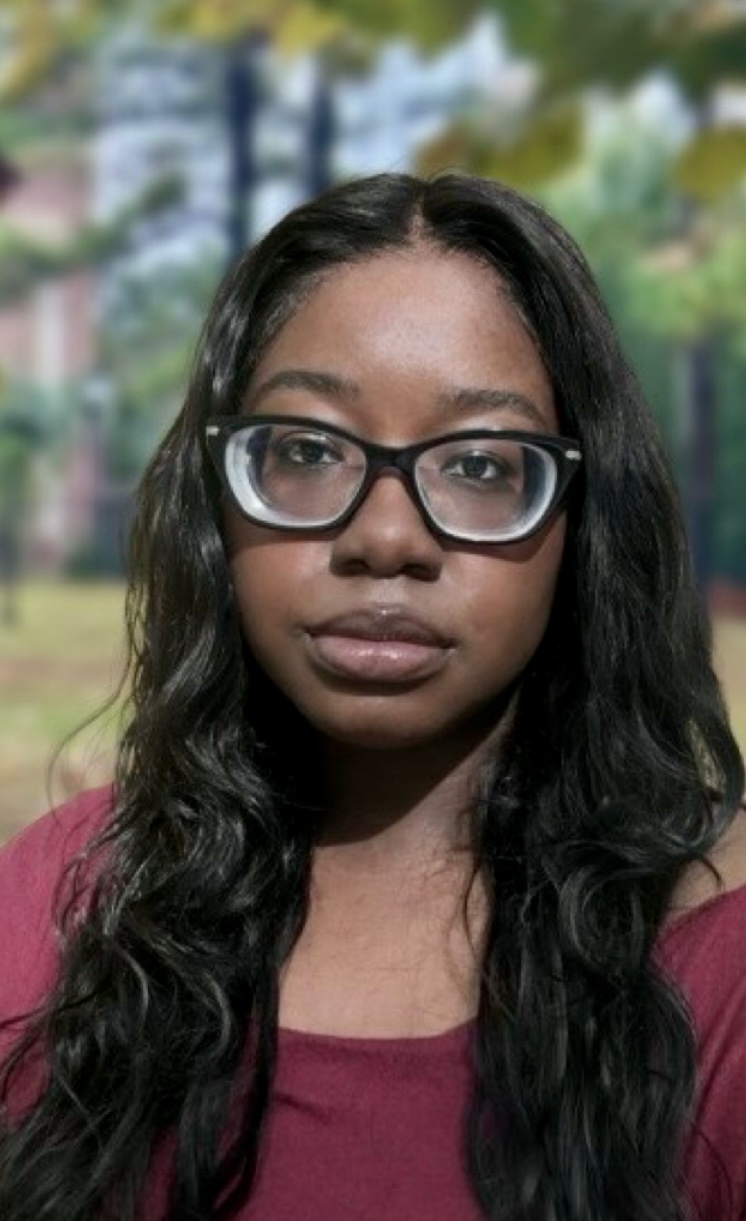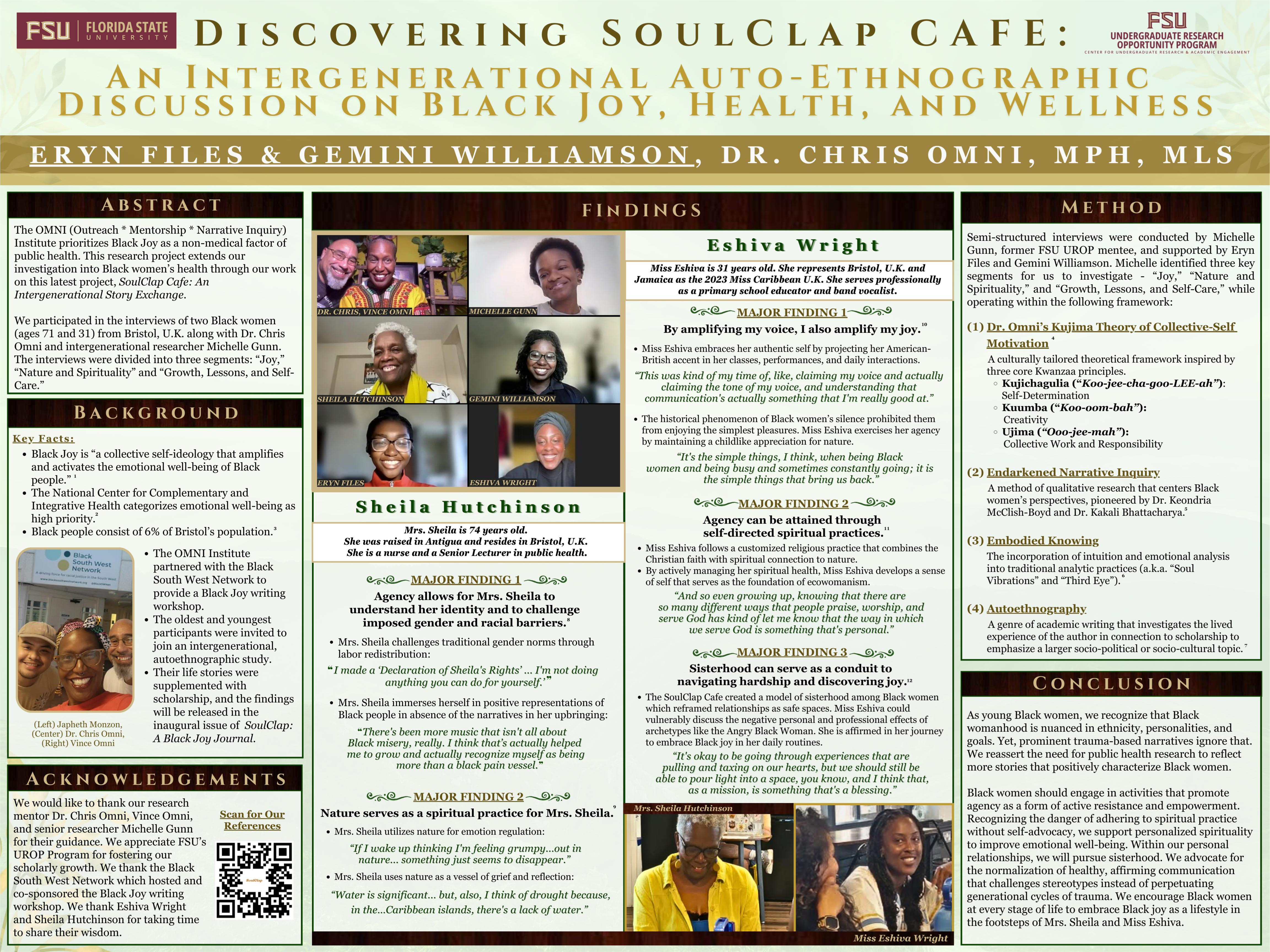Research Symposium
25th annual Undergraduate Research Symposium, April 1, 2025
Gemini Williamson Poster Session 2: 10:45 am - 11:45 am/ Poster #106

BIO
Born and raised in West Palm Beach, Florida, I am a first-generation college student using my love for nutrition and children's health to become a Pediatric Dietitian. I pride myself on my educational integrity and drive as I continue my undergraduate studies. When I am not focusing on excelling academically, I turn to my community to find ways to grow it and myself. I also enjoy personal hobbies such as Yoga, writing, and childcare. These factors encourage me to continue to push through adversity, accomplish my goals, and help people the way I aspire to every day.
Discovering SoulClap: An Intergenerational Auto-Ethnographic Discussion on Black Joy, Health, and Wellness
Authors: Gemini Williamson, Dr. Chris OmniStudent Major: Dietetics
Mentor: Dr. Chris Omni
Mentor's Department: Geography Mentor's College: College of Arts and Sciences Co-Presenters: Eryn Files
Abstract
The OMNI Institute prioritizes Black Joy as a non-medical factor of public health, countering trauma-based narratives typically associated within the community. This research project extends our investigation into Black women’s health through our work on the OMNI Institute’s latest project, “SoulClap Cafe: A Black Joy Journal.” Contributing to the release of the inaugural edition’s theme, “Black Joy and Nature,” we participated in the interviews of two Black women from Bristol, U.K. with Dr. Omni and intergenerational researcher Michelle Gunn in three segments, themed “Joy,” “Nature and Spirituality,” and “Growth, Lessons, and Self-Care.” We identified common themes within the interviewees’ experiences through embodied knowing and endarkened narrative inquiry, integrating intuition and sensory awareness into the traditional analytical research process. As a team, we followed Dr. Omni’s Kujima Theory of Collective Self-Motivation, featuring "kujichagulia" (self-determination), "ku’umba" (creativity), and "ujima" (collective work and responsibility). We investigated the broad influence of these themes on Black women’s sense of identity and collective wellness through literature reviews. We identified key theories like Alice Walker's and Dr. Melanie Harris’ eco-womanism. Considering our personal connections to the research as young Black women, we ultimately challenge the modern characterization of the Black woman and argue for the normalization of self-care, agency, religion, and sources of wellness found to intersect with Black women’s experiences in nature.
Keywords: Black Women, Wellness, Public Health


